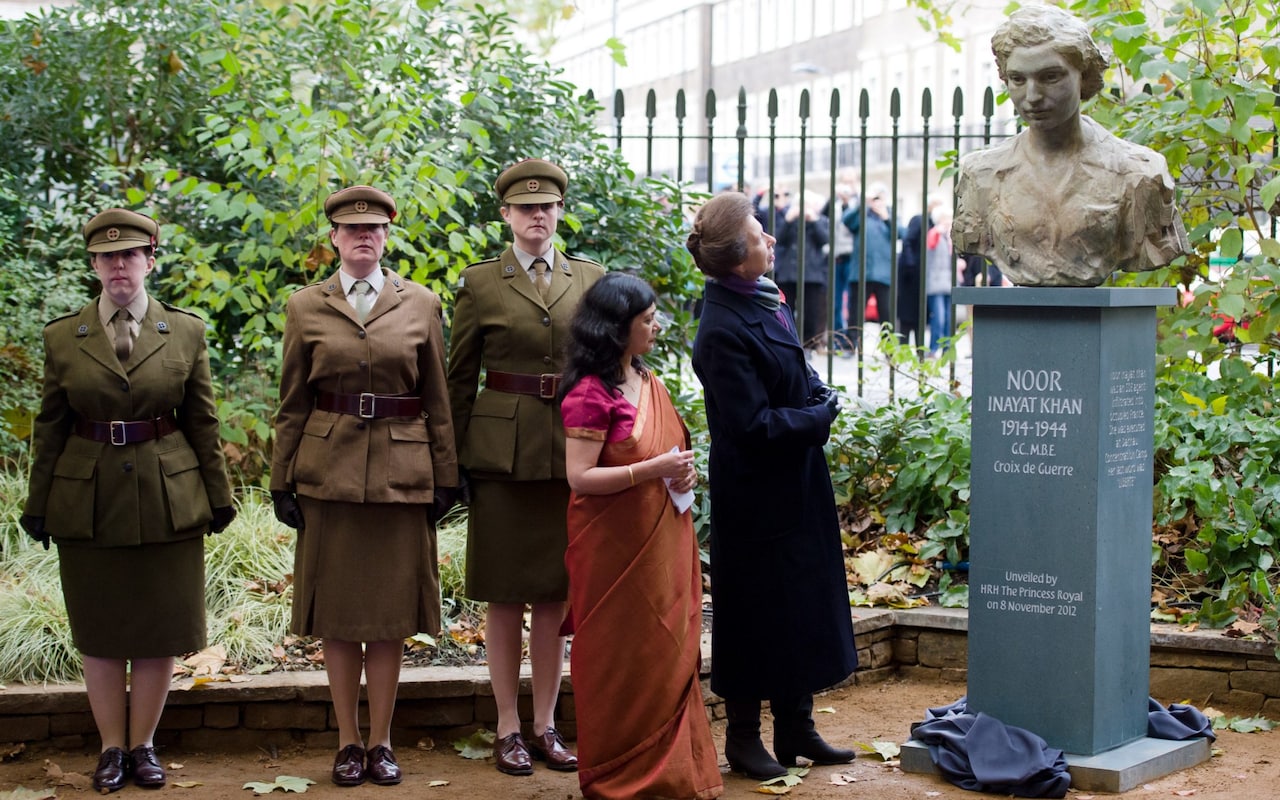
Sameeha Shaikh recently wrote an historical account of WW2 Heroine Noor Khan for the Telegraph UK and in this new op-ed, says that the “presence of Inayat Khan on a £50 note has the potential to dispel clichéd narratives surrounding Muslim women and Islam, which I see far too often.”
Here are some other snippets from her piece:
— As a young Muslim myself growing up in multicultural London, I was completely unaware that a Indian Muslim woman from Moscow had died in the name of liberty, while actively participating in the battle against Hitler’s regime in 1944.
— I can’t say this lack of awareness was entirely surprising. Throughout my academic life, I was scarcely taught about the some 2.5 million Indian soldiers – the single largest volunteer army – who fought in World War II for the freedom of a country that was not their own; a fact of history which, in my eyes, requires a whole lot more shouting about.
— Zehra Zaidi, who leads the campaign to put Khan on the £50 note, described Inayat Khan as “an inspirational and complex woman who was a Brit, a soldier, a writer, a Muslim, an Indian independence supporter, a Sufi, a fighter against fascism and a heroine to all. She navigated complex identities and has so much resonance in the world we live in today.”
— I welcome this campaign [to put Khan on the note]. As well being an example of the great spectrum of realities experienced by Muslims in Britain, Inayat Khan will serve as the perfect reminder of the positive contributions made by the nation’s ethnic and religious minorities, both past and present.
For even more on this remarkable woman, be sure to watch Enemy of the Reich: The Noor Inayat Khan Story, produced by our sister company, Unity Productions Foundation.



